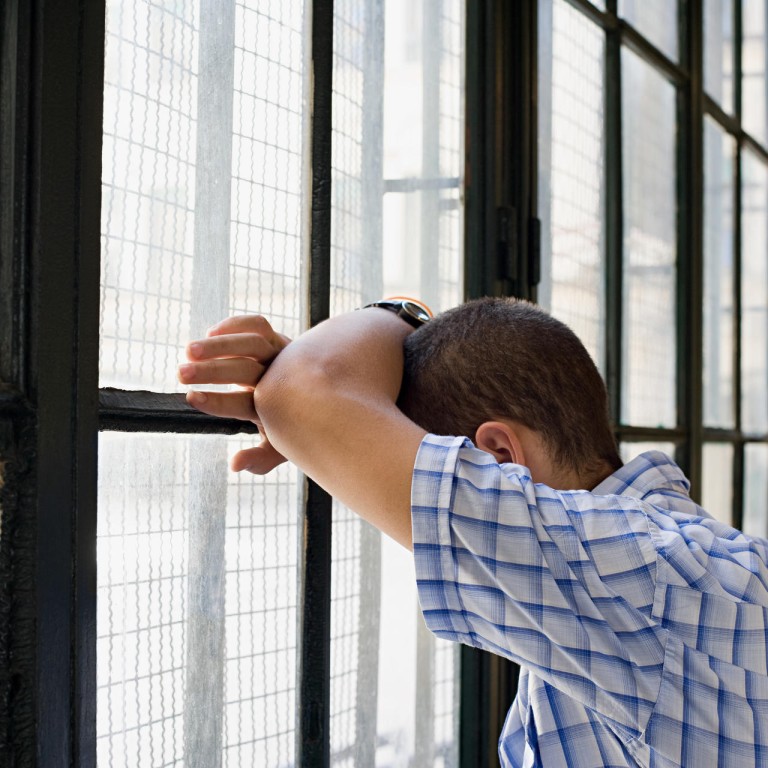
Coping with teenage children
Getting your child through the teen years is all about trust, security and balance, writes Hayley Thomas
Fred and Sally first took their 13-year-old son Matthew for therapy after his school caught him smoking cannabis for the third time. They have a good relationship with their son, however, and he is sorry for letting them down.
Hong Kong is a safe city and children here are often unsupervised to a greater extent than elsewhere. But this can mean that teenagers hanging out with their friends in parks at night can be introduced to smoking and drinking at an early age. Irrespective of this city's relative safety, parents must supervise their children at this crucial age.
Matthew is intelligent and creative but he is also impulsive and prone to being irresponsible with schoolwork and in responding to requests from his parents.
His parents are not engaged in his life and he appears to welcome doing things on his own. Matthew does not ask his parents for advice. If he is struggling with something he tends to try and work it out by himself - not always successfully.
It is important for parents to take part in their children's lives and pay attention to what is going on in school and with their friends. This boosts their child's self-esteem and give them a sense of security, while also allowing them some freedom. It's a difficult balance and requires constant judgement calls.
Often teenagers rebel against parents' authority and don't want them to be involved in their lives. It's important not to be too judgmental and, if there is something wrong, to ask questions.
Fairness and trust is of paramount importance. If a child or teenager feels a parent is unfair they will rebel or become secretive. If they feel distrusted it will affect their self-esteem and create distance from the parent. If you show you trust your child it will lead to a more open relationship.
To keep your children safe and doing age appropriate activities, find out where they hang out and pop in on them from time to time. Have parties or friends to stay over. Get children involved in sporting activities and hobbies on the weekends. Meet the parents of other children and get to know them and their parenting styles. Children will often go and stay with friends whose parents impose few guidelines. A good, warm relationship with your child is primary, otherwise protecting your teenager will be seen as a huge imposition.
Matthew feels as though his parents don't listen to him. If a child cannot or does not talk to you it is a concern. Parents should try to be honest with themselves and see if there are any barriers to open communication. If a child continually comes up empty-handed when trying to get their needs met, other dysfunctional behaviour can start to appear. Look at today's generation and not your own childhood. Talk to children and ask the question; do I have this right? Seek first to understand and then be understood. When a young person speaks, listen for their needs and feelings. These are the most important part of any conversation.
Protecting a young person can be confusing, filled with worry about making the wrong choice. Open communication relieves this. It's about trusting your teen with the freedom you have given them to make the right choice, allowing them room to make mistakes and promoting honesty. When your child is honest, even if they have done something wrong, try to control your reactions. Calm discussions are best. For instance, if they are having a self-esteem problem and you punish them for wearing too much make-up, you will be missing the solution. It takes courage to talk and express feelings. Support them with physical and emotional gestures. Negotiate fair outcomes, children need clear expectations for behaviour and shouldn't be scared of sometimes doing the wrong thing or of being punished.
Let them know that they have your trust. Trusting them teaches them to trust themselves. If they have broken your trust, try to resolve this in your own mind and show them how they can repair the damage. Also don't let things go unresolved; issues weigh heavily on children and cause stress and anxiety. Learn to forgive and show kindness. Reward children who show that they can be trusted with age-appropriate freedom.
Teenagers may not seek greater interest in their lives; they may even resent it but they need guidance. Matthew could have benefited from some structure and more attention from his parents.
Children should be allowed to blossom and flower, but protect them with structure and moral clarity. Expatriate children are especially vulnerable to the mistake of getting too much freedom and it can be costly. The perfect balance of freedom versus security remains elusive but being attentive, communicative and loving parenting is a great start.
